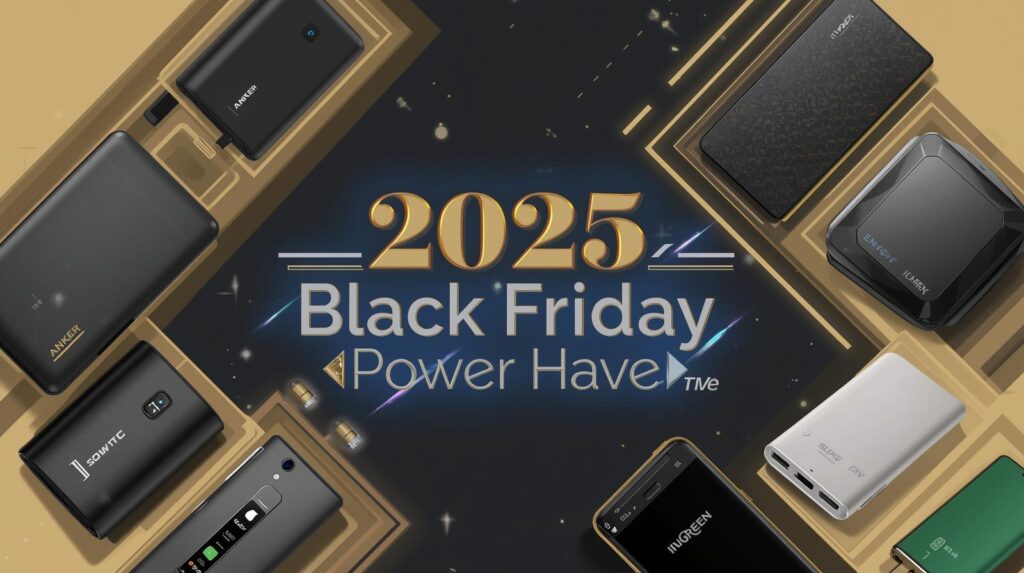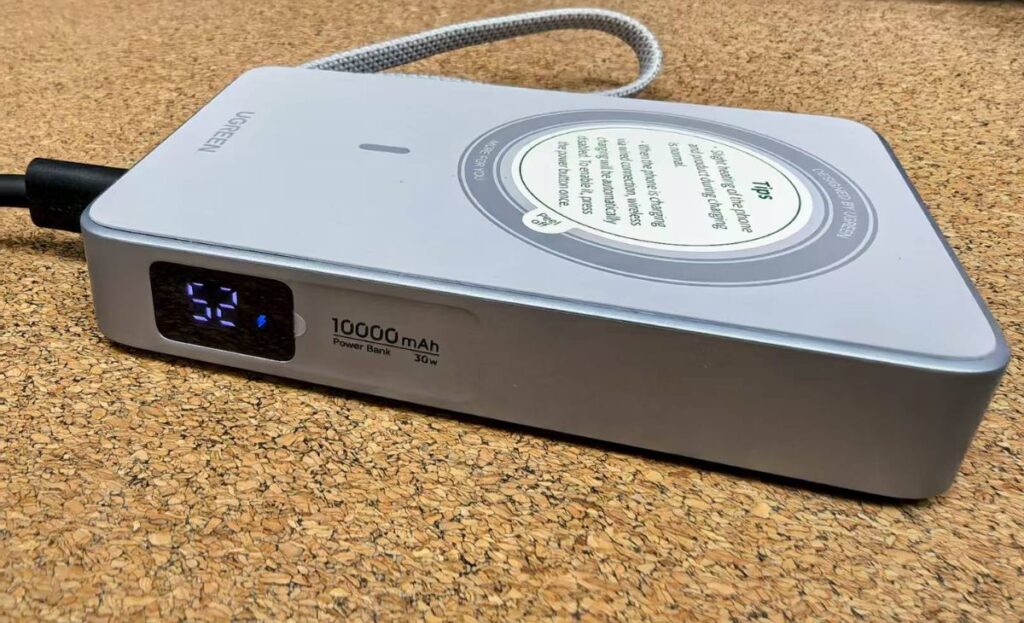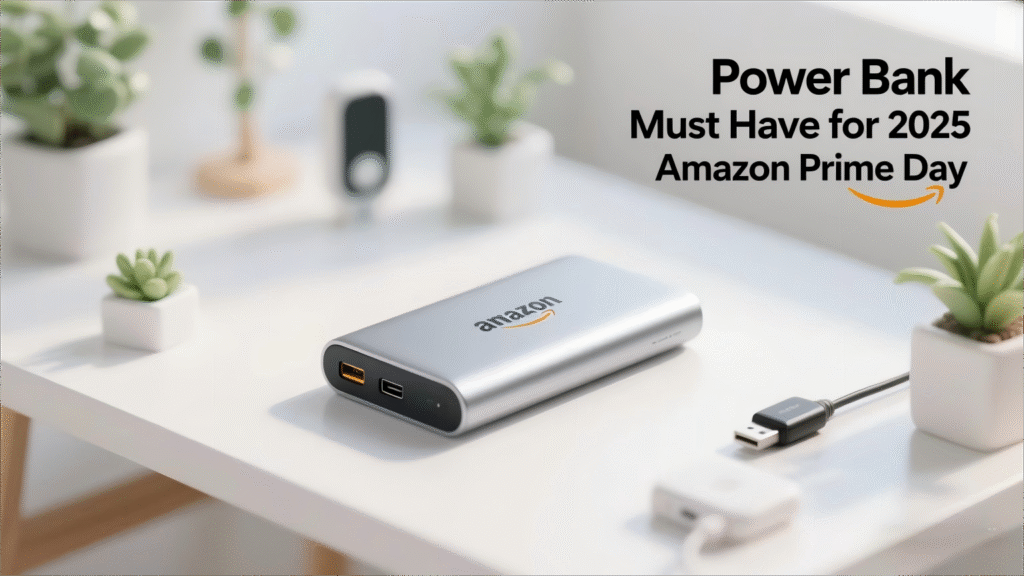Ugreen MagFlow 10,000mAh Power Bank Review: Real-World Qi2 Charging Tested
As someone who already owns more power banks than I probably need — plus a trusty Anker 334 wireless charger — I wasn’t sure if the Ugreen MagFlow 10,000mAh Power Bank would feel like a real upgrade. Between my Huawei Pura and Xiaomi 14, and my wife’s iPhone 16, I decided to put it through real-world tests. Here’s what I found.
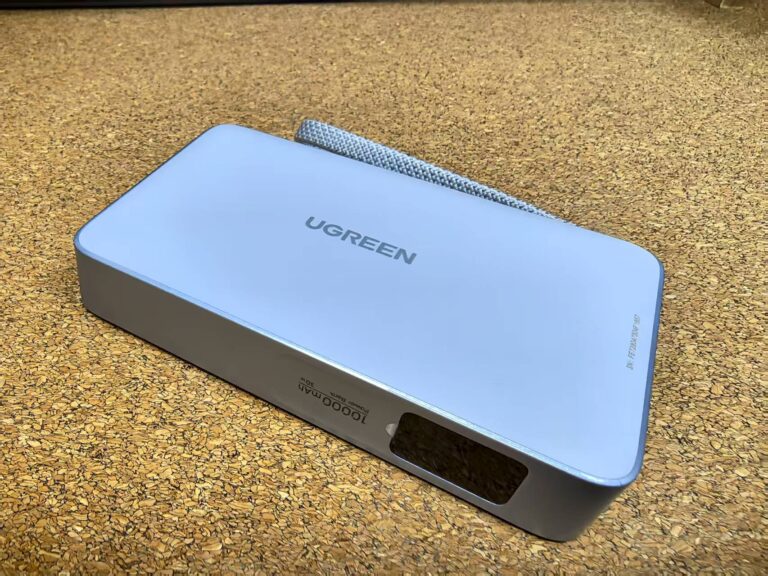
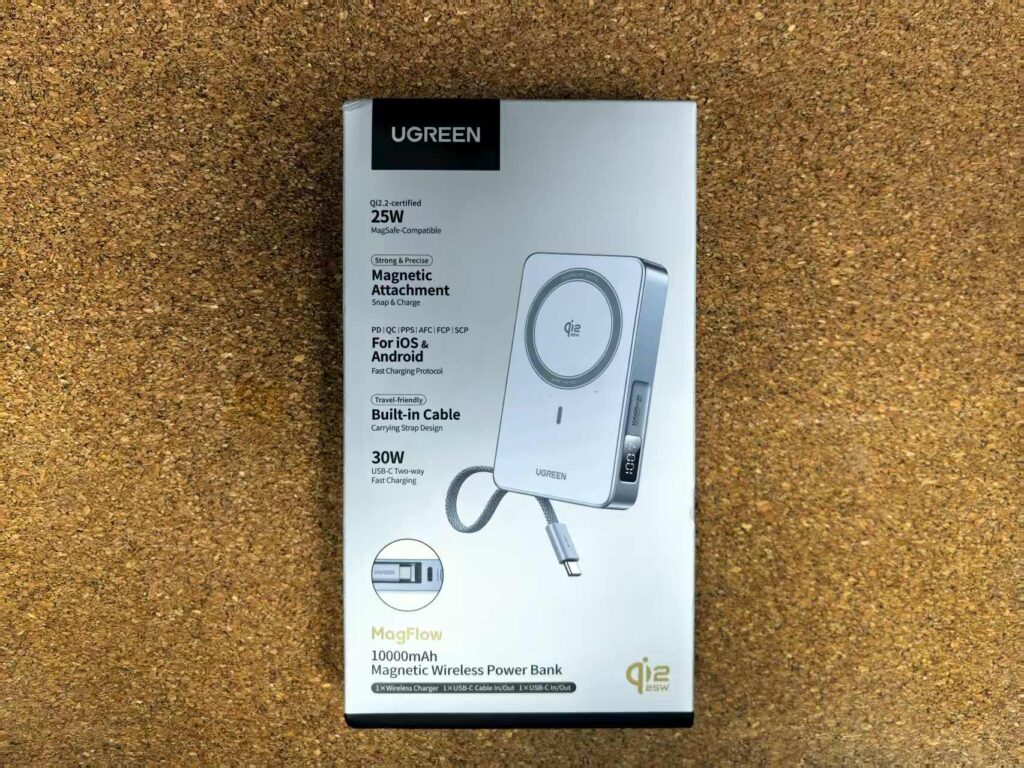
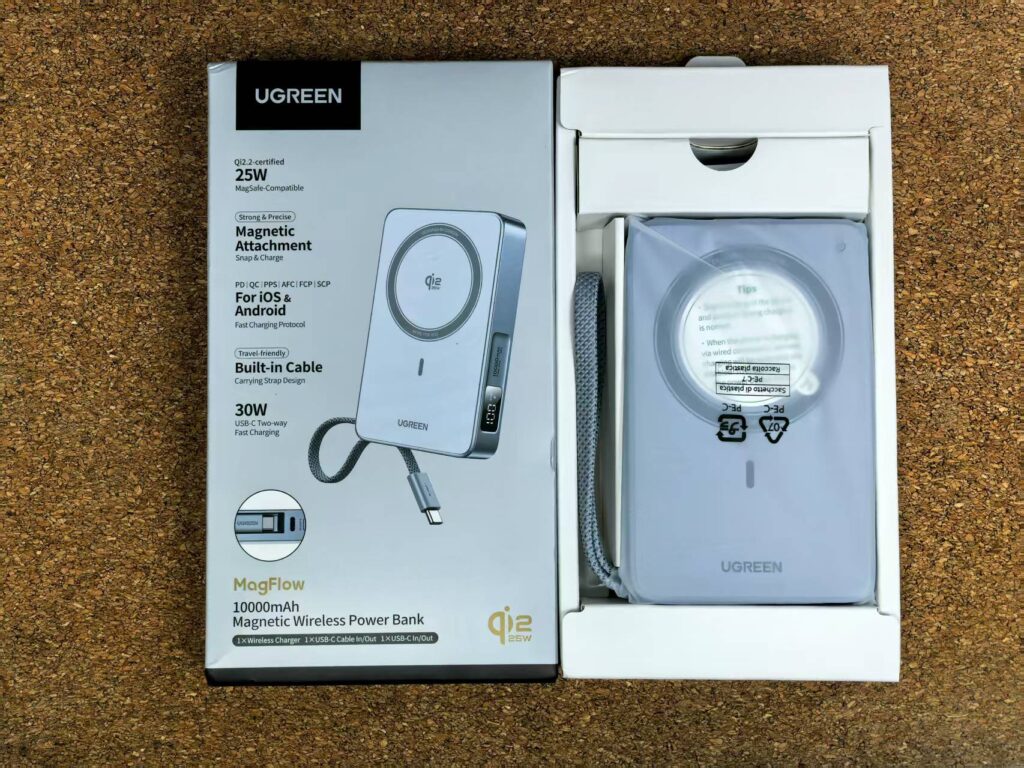
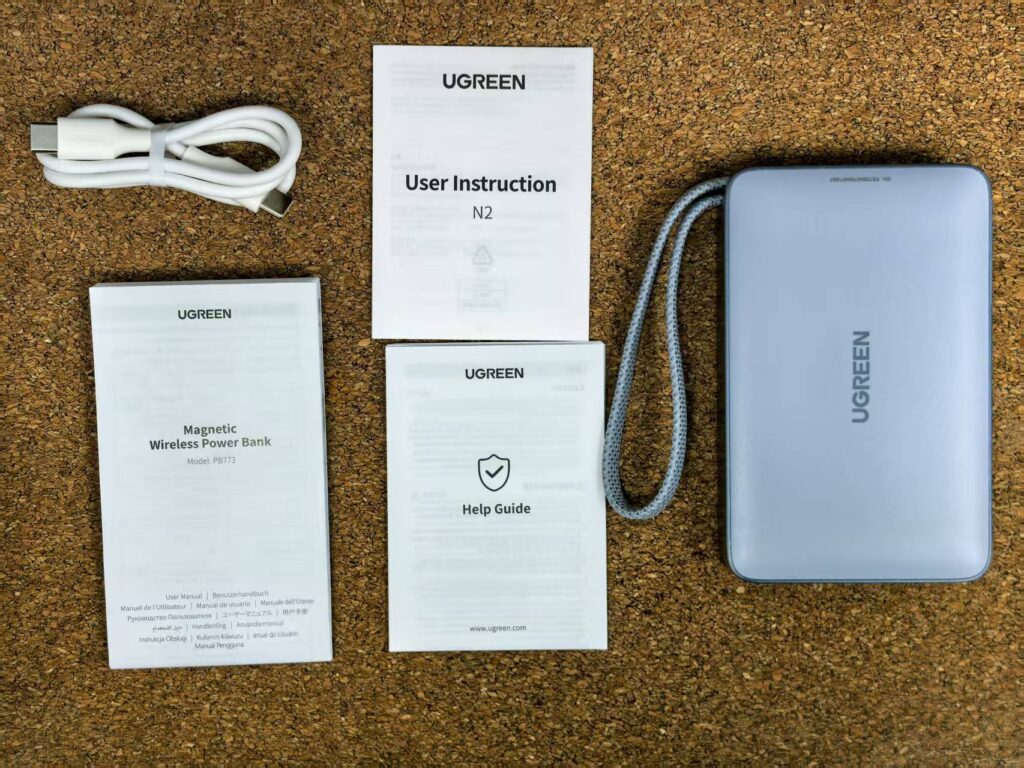
Table of Contents
We Like
Qi2 wireless charging is noticeably faster than Qi1.
Built-in USB-C cable saves me from carrying extras.
Digital display for battery % is much better than blinking lights.
10,000mAh capacity + portable size = reliable all-day backup.
Handles both wireless (iPhone) and wired (Android) charging well.
We Don't Like
A bit chunky when attached directly to the phone.
Only one USB-C port, while Anker 334 offers both USB-C and USB-A.
Magnetic hold weakens with thick phone cases.
To enjoy full Qi2 speed, you need a Qi2-supported device.
Specification

USB-C Cable/USB-C Input: 5V-3A/9V-3A-2.5A/15V-2A
USB-C Cable/USB-C Output: 10V-2.25A/5V-3A/9V-3A/12V-2.5A/15V-2A/20V-1.5A
Wireless Charging Output Power: 25W Max(iPhone:25W)
Total Output: 5V-1.5A+5W Max
Battery Type: Polymer Lithium-ion Battery
Rated Energy: 36Wh 7.2V
Rted Capacity: 5600mAh(5V/3A)
Total Cell Capacity: 10000mAh
Battery Capacity: 5000mAh (Two Cells in Serires)
Battery Charging Limited Voltage: 4.25V
Wireless Charging Working Frequency: 110kHz-148.5kHz & 360kHz(for EU/UK)
The Big Question: Is Qi2 Really Faster?
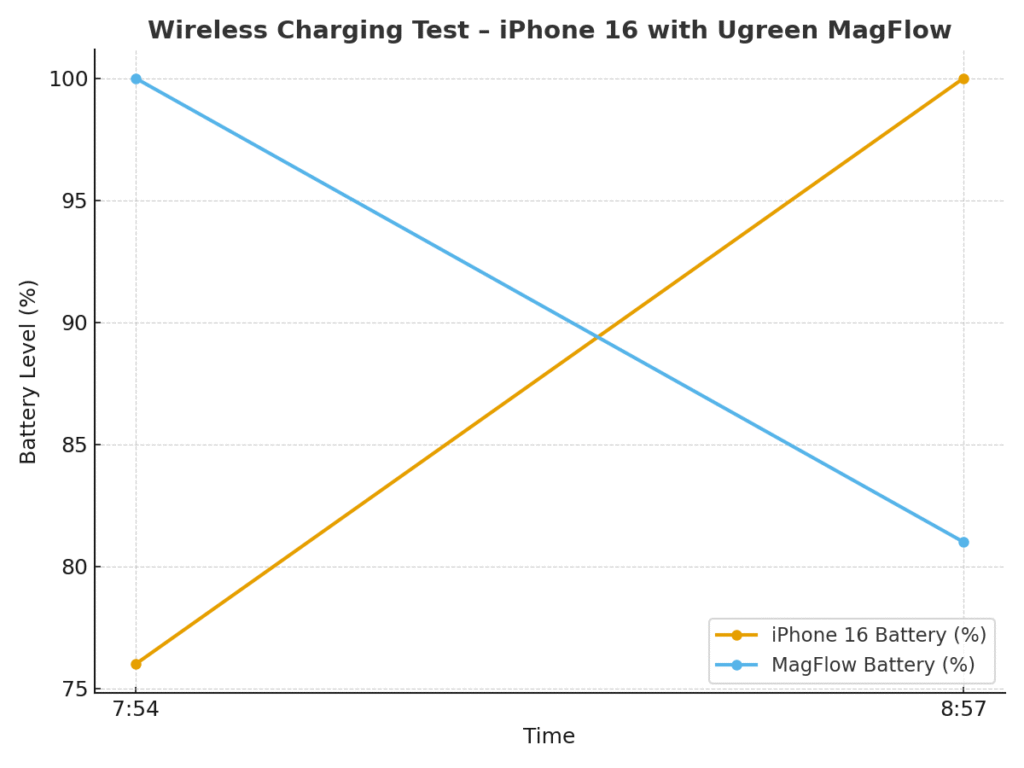
The jump from Qi1 (15W MagSafe) to Qi2 (25W) is the main selling point here. On paper, that’s about 30% faster, but I wanted to see it for myself.
Wireless Charging Test – iPhone 16
Start: 76% at 7:54 AM
End: 100% at 8:57 AM
Total time: 63 minutes
MagFlow battery dropped: 100% → 81%
Battery temperature: 30°C → 39°C
Result: The iPhone 16 charged from 76% to full in just over an hour. Compared to my Anker 334 (Qi1), which slows down significantly past 70%, the MagFlow was noticeably quicker and more reliable.
Real-Life Wired Charging Performance
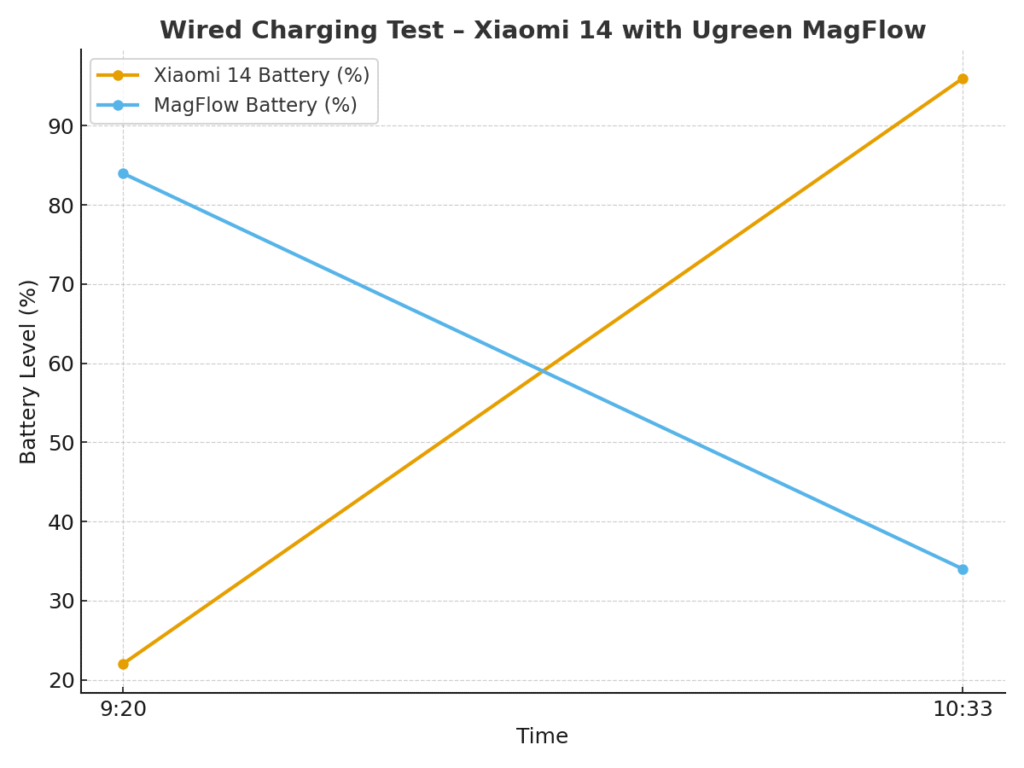
Since my Huawei Pura and Xiaomi 14 don’t support Qi2 yet, I tested the built-in 30W USB-C cable.
Wired Charging Test – Xiaomi 14
Start: 22% at 9:20 AM
End: 96% at 10:33 AM
Total time: 73 minutes
MagFlow battery dropped: 84% → 34%
Battery temperature: 30°C → 31°C
This test impressed me: fast, efficient charging with almost no heat buildup. The built-in cable meant I didn’t have to bring extras, which is a huge convenience for travel.
Recharge Speed Test
I recharged the MagFlow itself with my Xiaomi GaN Charger 45W:
Start: 34% at 9:25 AM
End: 60% at 9:55 AM
Total time: 30 minutes
That’s about 26% gained in half an hour — pretty solid for topping up on the go.
Magnetic Hold: Strong but Case Matters
The 17-magnet system holds my wife’s iPhone 16 firmly when used without a case. It locks instantly and doesn’t wobble. But with a thick case like mine, the hold isn’t as secure. If you use rugged or thick protective cases, you may not get the same snap-and-go experience.
Ugreen MagFlow vs. Anker 334: Side-by-Side
I’ve used the Anker 334 long enough to know its strengths and weaknesses. Here’s how it compares with the MagFlow:
| Feature | Ugreen MagFlow 10,000mAh | Anker 334 |
|---|---|---|
| Wireless Charging Standard | Qi2 (25W) – ~30% faster than Qi1 | Qi1 (15W) |
| Wired Charging | 30W USB-C + built-in USB-C cable | USB-C + USB-A (no built-in cable) |
| Battery Indicator | Digital screen (shows % left) | LED lights only |
| Magnetic Hold | Strong with bare iPhone, weaker with thick cases | Standard MagSafe hold |
| Size & Weight | Bigger, heavier | Smaller, lighter |
| Battery Capacity | 10,000mAh | 10,000mAh |
| Recharging | USB-C (fast with GaN charger) | USB-C |
| Best For | iPhone 16/17, Pixel 9/10 users with Qi2 | Users okay with slower Qi1 speeds |
Conclusion
After running real tests, I can confidently say the Ugreen MagFlow 10,000mAh Power Bank is a meaningful upgrade over Qi1 chargers like the Anker 334. The faster Qi2 wireless charging, stronger magnets, built-in cable, and battery display make it far more versatile.
Bottom line: If your phone supports Qi2 (like iPhone 15/16/17 or Pixel 10 Pro XL), you’ll unlock the MagFlow’s full potential. For Android devices like my Huawei Pura and Xiaomi 14, it’s still a great power bank, but the real game-changer is when paired with Qi2.

